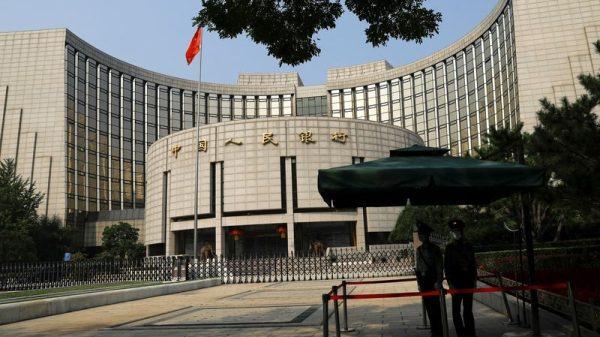By Leika Kihara
TOKYO (Reuters) – Japan’s service-sector sentiment worsened and bankruptcy cases rose in October, data showed on Monday (NASDAQ:MNDY), casting doubt on the central bank’s view the country was on track to meet its 2% inflation target driven by robust domestic demand.
The findings align with concerns voiced by some Bank of Japan (BOJ) board members at last month’s policy meeting that intensifying labour shortages could constrain growth, rather than lead to higher wages.
“There’s a risk Japan’s economic growth will slow if labour supply constraints force firms to shrink operations by withdrawing from low-profit businesses,” one member was quoted as saying in a summary of opinions released on Monday.
An index measuring sentiment among service-sector firms like taxi drivers and restaurants stood at 47.5 in October, down 0.3 point from the previous month to mark the second straight month of declines, the government’s “economy watchers” showed.
A gauge of firms’ sentiment on the economic outlook also fell 1.4 points to 48.3, worsening for the second month and highlighting the fragility of Japan’s recovery.
“Corporate sentiment remained strong for quite a long time but seems to be worsening somewhat, which is a concern,” said Nobuyasu Atago, chief economist at Rakuten Securities Economic Research Institute.
“It raises some questions as to whether rising wages will boost consumption and lift service-sector sentiment, as the BOJ predicts,” he said.
The “economy watchers” survey is closely watched by markets as a leading indicator of household spending and the broader economy, due to the polled firms’ proximity to consumers.
Corporate bankruptcy cases are also creeping up as rising raw material costs and labour shortages squeeze profits particularly for small and medium-sized firms.
The number of companies that went bankrupt hit 925 in October, the second largest this year following 1,016 cases in May and up 17.1% from year-before levels, a survey by private think tank Teikoku Databank showed on Monday.
Of the total, a record 287 cases were caused by trouble hiring staff, the survey showed, a sign some firms were struggling to earn enough profits to pay higher wages.
The BOJ exited a radical stimulus programme in March and raised its short-term policy rate to 0.25% in July.
BOJ Governor Kazuo Ueda has said the central bank will continue to raise rates if robust domestic demand, backed by higher wages, keep inflation sustainably around its 2% target.





































